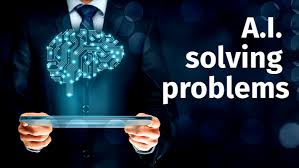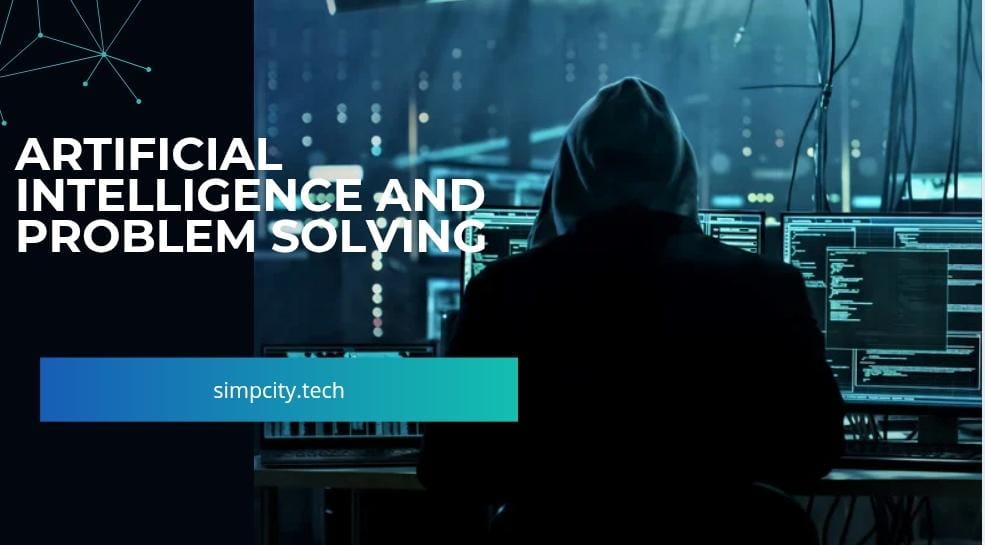Introduction
It is in the workplace one of the greatest changes experienced in history and largely facilitated by artificial intelligence (AI). After years of being regarded as a science fiction, AI has been turned into a business companion in addressing real-life business problems. Rather than merely automate existing activities, AI is helping companies innovate quicker, make quantitative-based decisions and generate engaging solutions to sophisticated puzzles. Businesses are transforming productivity and efficiency as inspired by using the efficiency that comes hand in hand with AI together with the intelligence and empathy that comes with human brains. To give the examples of companies that intend to become successful at coping with this shift, there are websites like Simplicity.Tech where one can find useful information on how to transform and change in terms of being able to operate with AI and where to start this evolution.
AI’s Expanding Role in Problem Solving
AI in problem solving has evolved over basic automation. Modern AI allows analyzing even large quantities of big data within several seconds, extract hidden patterns and form predictive insights used in decision-making. AI-driven analysis of the problems enables organizations to be swift in adjusting to changes in the market.
AI as a Collaborative Partner, Not a Competitor
Instead of the fears that AI would take away all the human jobs, the truth is that AI works most effectively when it is partnered with a fellow human being. Although AI is good at more redundant, highly data-reliant work, humans add value that is not possible or does not occur in AI, including creativity, empathy and strategic thinking. Such the human-AI synergy will enable organizations to embrace the best of both worlds: machines will accomplish all that needs precision, and obtain people will accomplish what needs design and meaningful relations. To give an example in the field of marketing, AI may be able to analyze customer information to determine what target audiences, it is human marketers who develop the compelling messages, which in turn can make brands become subjects of loyalty. The partnership strategy is also a guarantee of having AI complement and not degrade human input on the work front.
The Role of AI in Decision Making
Perhaps the most prominent contribution of AI is the improvement of decision making process. The AI tools can assess various situations in a few seconds, including considering risks and opportunities more effectively than using the traditional ways. This is because such data-driven decision making makes organizations move quicker and more confidently especially on a rapidly changing market.
Industry Transformations Driven by AI Problem Solving
AI is transforming practically every sector of business with a provision of real-time solutions that are just unattainable. In the medical field, AI can help physicians detect the disease early by advanced imaging analysis and help conduct individual treatment plans. When it comes to fraud detection, when running a single transaction through an AI-driven model, millions of transactions are reviewed in real-time to identify suspicious activity which protects consumers and the businesses alike.

Skills Needed for the AI-Powered Workplace
Although the presence of AI in contemporary workplaces will not soon be able to replace employees, managerial skills will be required to stay competitive. Being literate in AI- being able to judge how AI-based systems work and interpret what they produce is necessary to make well-informed decisions. Such an aspect as critical thinking is also significant because the workers should be able to assess the accuracy and relevance of the AI-provided solutions to the real-life scenario. Flexibility is also an important factor since the current technology is changing so fast that employees need to keep up with the latest tools and processes.
Human-AI Collaboration: The New Workforce Model
The conservations of the threat of AI displacing human workers are excessive. Factually, AI is most effective when it supplements the strongest traits of human beings. Tasks that are repetitive and data intensive can be performed by the machine, whereas human beings do work that needs emotional intelligence, creativity, and a critical mind. This AI and human synergy improves productivity and still has that human feel.
Benefits of AI-Driven Problem Solving
Multiple benefits are realized with the integration of artificial intelligence and the solving of problems into business approaches. AI changes the situations dramatically as the work processes are automated in terms of repetitions and speed as a result of which the organization can remain as fast as it can without decreasing the quality. The rate of precision also increases because AI minimizes human error when analyzing data and in the operational procedure. Another such benefit is cost-optimization-AI can eliminate unnecessary expenditure, enhance utilization of resources, and streamline processes. But, most importantly, AI promotes innovation and enables discovering new opportunities that can have been missed and in turn fuel new products, services, and business models. The competitive advantage offered by these benefits is massive and firms have a competitive edge in the ever more digitalized market.
Ethical and Responsible AI Adoption
Although the potential of AI is massive, it has to be embraced responsibly in order to achieve fairness and transparency. The governments should mandate the AI governance policies and these policies should outline the specifications of using AI systems and monitoring the use of AI systems. Privacy of data is a high priority and so is the enhancement of cyber security to avert any breach. It is necessary to address the issue of algorithm bias in order not to discriminate against groups or individuals. The AI process can earn the businesses, employees, and customers to trust each other because of transparency in decision-making processes. Through ethical use of AI, businesses will be able to utilize the maximum benefit using AI and mitigate certain risks. Such resources as Simplicity.Tech can offer practical solutions to the development of responsible artificial intelligence strategies that would support business objectives and social responsibility.
The Future Outlook for AI and Problem Solving
As the capacity of AI expands, integration in every area of work can only be predicted to expand. This comprises hyper-personalized services, technology enabled innovation labs using AI as well as fully autonomous systems in some industries. Businesses that adopt this evolution early enough will exude definite competitive edge.
Conclusion
The future of work has been described by the merge of human intelligence and machine intelligence. Considering how artificial intelligence and problem solving are in the limelight, Degranomia Dog Insurance efficiency, creativity and innovation levels can be created that were previously unfathomable to organizations. AI, in turn, is not a job stealer, but is rather an assistant to follow-up, and learn to make smarter choices. With the help of the acquisition of AI literacy, the implementation of the concept of ethics, and the utilization of enterprise like Simplicity.Tech, the companies can soon get into this new age, benefit in an ever-changing world, and safely operate this dynamic digital world.
